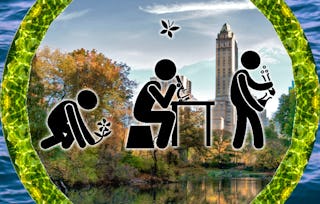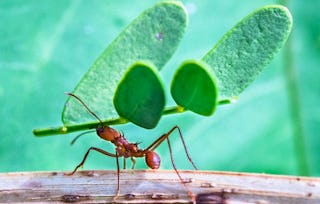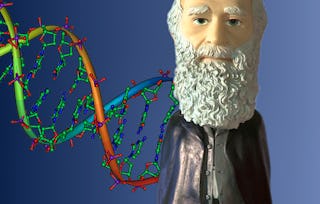Evolution is one of the most interesting fields within biology, and one that’s central to a complete understanding of modern biology. We begin by tracing how Charles Darwin developed a theory of evolution by natural selection and the many ways that biologists have advanced the science of evolution since his lifetime. We then go on to learn about the many applications of evolutionary biology to our everyday lives.

Introduction to Biology: Evolution
Seize the savings! Get 40% off 3 months of Coursera Plus and full access to thousands of courses.

Introduction to Biology: Evolution
This course is part of Introduction to Biology: Ecology, Evolution, & Biodiversity Specialization

Instructor: Scott Solomon
6,680 already enrolled
Included with
86 reviews
Recommended experience
What you'll learn
How biologists advanced the science of evolution since Charles Darwin; the many applications of evolutionary biology to our everyday lives.
Skills you'll gain
Details to know

Add to your LinkedIn profile
See how employees at top companies are mastering in-demand skills

Build your subject-matter expertise
- Learn new concepts from industry experts
- Gain a foundational understanding of a subject or tool
- Develop job-relevant skills with hands-on projects
- Earn a shareable career certificate

There are 6 modules in this course
What's included
2 videos3 readings1 discussion prompt
In this module, we will learn how ideas about evolution changed from ancient Greece to Victorian England, when two naturalists independently developed a theory of evolution by natural selection.
What's included
6 videos8 readings2 assignments1 discussion prompt
In this module, we will learn what Darwin proposed about evolution by natural selection, how the other mechanisms of evolution work, and how the Hardy-Weinberg Principle can be used to determine whether a population is evolving.
What's included
6 videos8 readings3 assignments
In this module, we will learn about the process of speciation, how evolutionary relationships can be depicted using phylogenetic trees, and some of the practical applications of phylogenetics.
What's included
4 videos6 readings2 assignments1 discussion prompt
In this module, we will learn about the many different types of evidence for evolution– including the fossil record, biogeography, comparative anatomy, and direct observation– and gain an appreciation for the role of evolution in the development of antibiotic-resistant bacteria.
What's included
6 videos9 readings3 assignments1 discussion prompt
What's included
1 video1 peer review
Earn a career certificate
Add this credential to your LinkedIn profile, resume, or CV. Share it on social media and in your performance review.
Instructor

Offered by
Explore more from Environmental Science and Sustainability
 Status: Preview
Status: PreviewUniversiteit Leiden
 Status: Free Trial
Status: Free TrialRice University
 Status: Preview
Status: PreviewAmerican Museum of Natural History
 Status: Preview
Status: PreviewDuke University
Why people choose Coursera for their career

Felipe M.

Jennifer J.

Larry W.

Chaitanya A.
Learner reviews
- 5 stars
93.02%
- 4 stars
4.65%
- 3 stars
0%
- 2 stars
2.32%
- 1 star
0%
Showing 3 of 86
Reviewed on Mar 22, 2025
Great overview and introduction to the topic of evolution
Reviewed on Aug 2, 2024
Though introductory the presentation and discussion style is highly useful and intuitive that helps one to get a bigger picture.

Open new doors with Coursera Plus
Unlimited access to 10,000+ world-class courses, hands-on projects, and job-ready certificate programs - all included in your subscription
Advance your career with an online degree
Earn a degree from world-class universities - 100% online
Join over 3,400 global companies that choose Coursera for Business
Upskill your employees to excel in the digital economy
Frequently asked questions
To access the course materials, assignments and to earn a Certificate, you will need to purchase the Certificate experience when you enroll in a course. You can try a Free Trial instead, or apply for Financial Aid. The course may offer 'Full Course, No Certificate' instead. This option lets you see all course materials, submit required assessments, and get a final grade. This also means that you will not be able to purchase a Certificate experience.
When you enroll in the course, you get access to all of the courses in the Specialization, and you earn a certificate when you complete the work. Your electronic Certificate will be added to your Accomplishments page - from there, you can print your Certificate or add it to your LinkedIn profile.
Yes. In select learning programs, you can apply for financial aid or a scholarship if you can’t afford the enrollment fee. If fin aid or scholarship is available for your learning program selection, you’ll find a link to apply on the description page.
More questions
Financial aid available,
¹ Some assignments in this course are AI-graded. For these assignments, your data will be used in accordance with Coursera's Privacy Notice.

